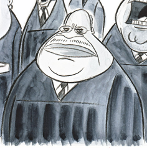|
Nintendo Kid posted:What does that have to do with good public transit? I understand you're probably from some lovely place where being on the transit line means taking 2 hours from your sprawl-hell but that's not how it works in cities with good transit. I agree, which is why "being near" is still a requirement, even in a city with good transit! Good transit alone cannot solve the problem of people being economically coerced into living a long distance from where they work. You need a combination of good transit, as well as good urban planning that allows people to live and work in close proximity to each other.
|
|
|
|

|
| # ? Apr 25, 2024 21:02 |
|
PT6A posted:I agree, which is why "being near" is still a requirement, even in a city with good transit! Good transit alone cannot solve the problem of people being economically coerced into living a long distance from where they work. You need a combination of good transit, as well as good urban planning that allows people to live and work in close proximity to each other. You can be "near" on public transit while being 5-10 miles away in actual distance, buddy boy.
|
|
|
|
Where do you live that 5-10 would be considered long? There's metropolitan areas with quite a longer distance than that for people to get to work.
|
|
|
|
RagnarokAngel posted:Where do you live that 5-10 would be considered long? There's metropolitan areas with quite a longer distance than that for people to get to work. Any huge real city? You know, ones with actual dense development and good transit. You go that far in New York City and you pass by a few million people. Sure in a trash hell city like Houston that just gets you from one within city limits exurb to the next, but that's not relevant.
|
|
|
|
Nintendo Kid posted:buddy boy. Can you please stop with this? You are constantly calling people "kid" for no reason. Buddy boy is a new twist, I think.
|
|
|
|
If your point is that far-flung suburbs are lovely, no one's arguing! That's a big part of what's driving gentrification, since people want to be "near" their work, which, for the purposes of discussion, we'll define as being less than 20 minutes away by an affordable form of transportation. If a city suffers from poor design, a good transit system can only do so much. That's the only point anyone's ever argued. No one's been making the point that people want to be physically very close to their place of work, only that they want it to be quick to get there somehow.
|
|
|
Pohl posted:Can you please stop with this? You are constantly calling people "kid" for no reason. Buddy boy is a new twist, I think. I, personally, feel he should continue, as it makes him sound like he exists primarily in black-and-white and smokes cigars
|
|
|
|
|
computer parts posted:It's the inverse to White Flight If you want a snappy term for this thing that keeps up the rhyme scheme: Caucasian Invasion
|
|
|
|
PT6A posted:If your point is that far-flung suburbs are lovely, no one's arguing! That's a big part of what's driving gentrification, since people want to be "near" their work, which, for the purposes of discussion, we'll define as being less than 20 minutes away by an affordable form of transportation. Not really, many gentrifying neighborhoods aren't particularly near people's existing jobs, they're just nicer to live in or fashionable. Now, after a bit of gentrification going on they tend to BECOME places where there is local work that people continue to arrive for, but that's not why people started showing up. It doesn't matter how it's designed initially, you can impose transit on top of it and get better redevelopment. Since many forms of transit require tearing up existing buildings and routes anyway, you get quite a bit of "redesigning" built in "for free". Land gets seized, roads get temporarily torn up, support infrastructure for the transit goes in, et cetera.
|
|
|
|
Nintendo Kid posted:Not really, many gentrifying neighborhoods aren't particularly near people's existing jobs, they're just nicer to live in or fashionable. Now, after a bit of gentrification going on they tend to BECOME places where there is local work that people continue to arrive for, but that's not why people started showing up. The main drive for gentrification here was industry scaling up and moving out of the older inner-city suburbs. The working class jobs moved outwards (or disappeared) at the same time as the CBD became a bigger source of employment. Employment concerns weren't the only factor (the increasing prevalence of cars, the post-war migration boom played their parts too) but it was the biggest.
|
|
|
|
Doctor Spaceman posted:The main drive for gentrification here was industry scaling up and moving out of the older inner-city suburbs. The working class jobs moved outwards (or disappeared) at the same time as the CBD became a bigger source of employment. Employment concerns weren't the only factor (the increasing prevalence of cars, the post-war migration boom played their parts too) but it was the biggest. gentrification flows the other way in the southern hemisphere
|
|
|
|
While we're improving real estate prices, instead of pricing out residents why don't we improve residents so they can afford to live in a more expensive side of town. As it stands now poor people exist either here or there, but I would like to see societal shifts from both the government and the poor themselves that can turn poor people into middle class people as fast as you could turn tenement housing into McMansions. Some ideas I have are re regulating interest rates to eliminate the most stupid of loans, making interest rates the same for all customers of an institution (Why should the poor pay more than the rich? By charging him more to cover the risk of default you are increasing the chance he defaults.), increasing public services for ALL residents poor and rich, creating an Employer of Last resort to ensure any poor that needs work can get some, subsidizing and encouraging birth control so poor parents don't make poor babies, and finding a way to get buy in from Everyone on the American dream, and creating a National Bank that will fill in the holes the private banking industry lets the poor fall through. This will make things a lot better for those who are mentally sound but stagnant in income and wealth. Dealing with the poor who suffer from mental illness or addiction would require funding public assistance centers where they can live and get treatment with citizenship training. All a pipe dream I know, but gosh darn it I want my McMansion and one of these days I'm gonna get it. tldr: How do we turn a poor population into a population that can live in gentrified areas?
|
|
|
|
Crazy Mike posted:tldr: How do we turn a poor population into a population that can live in gentrified areas? Full Communism.
|
|
|
|
Crazy Mike posted:tldr: How do we turn a poor population into a population that can live in gentrified areas? Guaranteed minimum income and housing subsidy.
|
|
|
|
If blight (or relative blight) is a pre-requisite for a communities gentrification, does implementing rent controls set up a communities for future gentrification? A bunch of economists will jump up and down saying that rent controls are inefficient , leading to reduced capital expenditures, a large % of building fall into disrepair, perceived disrepair lead to less investment in amenities, continued perception leads to blight, leading to reduced capital expenditures in housing, etc. (negative feedback loop) Given that buildings have a shelf life, eventually the value of the land & old building vs land & new building will dramatically jump. Enough building go through the cycle and the whole communities land value dramatically jumps, leading to gentrification. Can rent controls lead to undervalued housing being ripe for developers to buy (decades after original rent controls) and re develop in a way that shakes the rent controls and allows the valuation to move towards (even past) the market equilibrium?
|
|
|
|
Crazy Mike posted:tldr: How do we turn a poor population into a population that can live in gentrified areas? If you can stop poor people from committing crimes at high rates, you can turn any area into a somewhat richer version of itself, even if the quality of the housing/infrastructure isn't the greatest.
|
|
|
|
Junkyard Poodle posted:If blight (or relative blight) is a pre-requisite for a communities gentrification, does implementing rent controls set up a communities for future gentrification? I'd say probably not because A) Rent controls are implemented on a fairly granular basis, unit by unit, meaning neighborhoods with rent control are more socioeconomically diverse by default as people drop out of the program and are less subject to large scale external pressure. You'd have to differentiate then between gentrification of a whole neighborhood versus new residents gradually paying higher rent. B) Rent controls are only really a thing in NYC and you can't extrapolate from that extreme outlier to the rest of the country's major metros. C) Buildings don't really have a 'shelf life', poorly maintaned buildings may deprecate due to deferred maintenance but housing is weird and the valuation is hedonic so an old building may or may not be more valuable than a new building, it depends on hundreds of factors. In theory rent controls lead to lowered investment and therefore simulates the conditions that are precursors to gentrification but in reality, ¯\_(ツ)_/¯
|
|
|
|
on the left posted:If you can stop poor people from committing crimes at high rates, you can turn any area into a somewhat richer version of itself, even if the quality of the housing/infrastructure isn't the greatest. My needs and some of my wants are met, and my level of criminal activity is low. I would be more likely to commit crimes after experiencing increasing deprivation and desperation. I also have something to lose, keeping me away from many criminal endeavors. Keeping the poor from being deprived and giving them something to lose beyond not being in prison should temper the motivation for crime.
|
|
|
|
PT6A posted:No one's been making the point that people want to be physically very close to their place of work, only that they want it to be quick to get there somehow. You mean aside from: Radbot posted:
|
|
|
|
computer parts posted:You mean aside from: Which could easily be talking about "near" in terms of "time spent in transit" rather than absolute distance. The concept of "near" is relative, and depends greatly on the available transportation and the context in which it's used. Interpreting it in the most bizarre way possible just to start an argument doesn't seem to make much sense.
|
|
|
|
PT6A posted:Interpreting it in the most bizarre way possible just to start an argument doesn't seem to make much sense.
|
|
|
|
Actually, never mind.
Pohl fucked around with this message at 05:03 on Feb 25, 2015 |
|
|
|
 SA is a gated community, keeping the poors out and you love it. SA is a gated community, keeping the poors out and you love it.  You wouldn't want it any other way, you drat plutocrats. You wouldn't want it any other way, you drat plutocrats.
|
|
|
|
Popular Thug Drink posted:Society is doing the loving. It's like saying racism isn't a systemic problem if you can't identify particular racists pulling the strings. Society can't form the intention to gently caress and doesn't have any of the necessary parts. Moralizing about an abstraction like that isn't helpful. It's like when people accuse other people of racism, because even if they didn't do anything overtly racist they participate in SYSTEMIC RACISM  . .Popular Thug Drink posted:It's a well accepted fact, if you have some substantive theory that says otherwise I would like to hear it. It's the theory that society didn't make you rob that delivery driver / steal that car / burgle that house / etc. Popular Thug Drink posted:If you have questions, ask them. 30% is a well accepted standard by experts in housing policy. 30% seems affordable for sure, but isn't it based on an estimated budget in which other elements were more expensive?
|
|
|
|
computer parts posted:There's a common theme on these forums that urban living is ideal and rural and suburban living is unnaturally subsidized by the state. Gentrification is basically white people saying "you're right, urban living is so much better, I want to live there [again]". It's the inverse to White Flight, where people decide that they'd rather not drive a car to work every day even if it means interacting with other people (even if it practice they don't really interact that much). Suburbs are very heavily subsidized, in the US, by states and the federal governments. FHA and VA loans, and the presence of the federal government in the mortgage market, drastically alter the cost of home ownership. I don't think it is unfair to argue that without the robust housing policy structures put into place by the New Deal we wouldn't have anything close to the suburban sprawl we currently have. The interstate highway system is another enormous subsidy for the burbs. Without the highways, suburban and exurban development would be checked much closer to the urban core. I've got a friend who commutes 90 minutes to work one-way. The only reason he can do this is the highway system, without which his commute would be impossible or be four times longer. Gas subsidies, in the form of tax write-offs, oil depreciation allowances, Department of Energy expenditures in oil exploration research and other technical assistance makes gas cheaper and makes living farther out in the suburbs more economical and travel costs are kept artificially low. The state and feds provide grants and tax incentives for new suburban developments, which have the effect of masking the real costs of development for decades. Eventually the roads built with grants require property taxes to pay for maintenance, the sewer lines break down, utlities need upgrades, etc. and the residents have to shoulder enormous tax bills. Another friend of mine just got slapped with a $6,000 bill in September for road upgrades in her suburban development. Sometmes what endsup happening is that the suburb borrows money and gets grant funding etc for a new development, and uses the increase in property tax revenues, surplus grant money, etc from that development to subsidize the maintenance of the older development. This scheme works until the 2nd development falls into disrepair like the 1st development, and now you're hosed (until you leverage up for a 3rd, natch).
|
|
|
|
Grand Theft Autobot posted:Suburbs are very heavily subsidized, in the US, by states and the federal governments. Cool? I'm not disagreeing with any of this unless you're taking offense to the "common theme" part.
|
|
|
|
Grand Theft Autobot posted:Suburbs are very heavily subsidized, in the US, by states and the federal governments. No worries, those generous subsidies will be cut once enough socially aware middle/upper class people are safely ensconced inside the city center and the poors are pushed out to the periphery.
|
|
|
|
computer parts posted:Cool? I'm not disagreeing with any of this unless you're taking offense to the "common theme" part. Ah, yes, I took "common theme" to mean that you were skeptical. At any rate, I think it is helpful to spell out some of these subsidies. One of the hidden subsidies has already been mentioned: suburban commuters consume city resources (i.e. sewer, road, fire, police, other utility) without paying property tax to cover their consumption. This is a direct transfer from city dwellers to suburban commuters. Cities like Minneapolis/St. Paul have a number of policy devices to reduce these transfers, like regional tax base sharing schemes, and local government aid weighted towards older communities and dense urban areas. The intended consequence of much of the Twin Cities' strategy towards the burbs has been to induce upper and middle-class families to move to the streetcar suburbs, and to induce recent graduates and other young professionals to live in the core or streetcar suburbs. This has naturally lead to lower income folks being pushed out of their neighborhoods and into the suburbs. The suburb where I grew up had 24% non-white first-year enrollment the year I started grade school, and this past school year it was up to 78%. poo poo, even in my lilly-white urban neighborhood, where 40% of households make north of $100k per year, there has been an influx of still-wealthier families moving in from the burbs, tearing down our stucco craftsmen, and throwing up octo-peaked McMansions. My property value has climbed 25% in two years because we're being gentrified by even richer people.
|
|
|
|
Maybe we can try looking at this issue from a new angle. Does anyone have any examples of a community, of any size or geographic area/political distribution, successfully crafting an answer to gentrification? An example of an attempt would be a mandate by the Bloomberg administration in NYC to allow developers to build larger properties than original zoning allowed for if they also build a quantify of 'social housing'. An argument could be made however that this failed in its intended effect to get low and high income residents living in close proximity, as the developer placed an alternate entrance on the building specifically for low income residents. So, maybe not a useful example but I would be interested to hear if anyone heard of any success in creating mixed income housing developments . [1] http://en.wikipedia.org/wiki/Poor_door
|
|
|
|
Crazy Mike posted:
Loans would simply not exist anymore if they couldn't be priced differently. Poor people with lovely jobs are a lot more likely to default- it's not because they are charged more it's because the risk is tremendously higher to begin with. The added risk from the increased cost of the loan is a negligible component most of the time when these things are priced. You are much more worried the person loses their job. Anyway we already do this with student loans which has kinda been a disaster because when you hand out money without introducing cost controls on the thing they are buying you will see exactly what happened- college costs going through the loving roof. More on topic, as others have said most the problems related to gentrification stem from larger issues, besides that trying to stop it is utterly futile. bradburypancakes posted:Maybe we can try looking at this issue from a new angle. Does anyone have any examples of a community, of any size or geographic area/political distribution, successfully crafting an answer to gentrification? An example of an attempt would be a mandate by the Bloomberg administration in NYC to allow developers to build larger properties than original zoning allowed for if they also build a quantify of 'social housing'. An argument could be made however that this failed in its intended effect to get low and high income residents living in close proximity, as the developer placed an alternate entrance on the building specifically for low income residents. Examples of successful housing regulation anywhere in the world are incredibly rare , maybe non-existent out of isolated tiny examples. Even communist countries couldn't stop people from creating black markets to account for the fact some places are desirable to live and other places not. Even minimum income schemes or credits are not going to eliminate that problem of some places being too expensive for poor people to live, at the very least nobody has figured out how to do it without forming massive black markets that lead to bad things.
|
|
|
|
Farmer Crack-rear end posted:
No, not really at all, gentrification is overwhelmingly started by young people looking for cheaper rents. Sure they are often fairly well paid professionals but it's overwhelmingly still middle class people moving in. Of course it is done by people "wealthier" than the people living there, by definition. Popular Thug Drink posted:
No, a lot of times the houses/ neighborhood are really lovely. Often with incredibly high crime rates. Show me a part of chicago that gentrified that was "nice" before gentrification, doesn't exist. And that's the case for most cities, same thing in DC really- hell many of the gentrified areas of DC still look like complete poo poo. Popular Thug Drink posted:This is not axiomatically true - homeownership rates are lower among the urban poor, but not as low as you think. Pre 2010 number on this are utterly worthless, minorities got destroyed in the collapse.
|
|
|
|
tsa posted:
Chicago in the 40s didn't have nice neighborhoods?
|
|
|
|
Nintendo Kid posted:Neither is driving or walking, genius. Nintendo Kid posted:You can be "near" on public transit while being 5-10 miles away in actual distance, buddy boy. Maybe you'd be getting less pushback if you weren't such a combative little bitch.
|
|
|
|
Smudgie Buggler posted:Maybe you'd be getting less pushback if you weren't such a combative little bitch. If you want a friendly forum go to BYOB. I don't give a poo poo about people giving tsa posted:Show me a part of chicago that gentrified that was "nice" before gentrification, doesn't exist. Pretty much all of them, a few decades before they started to be gentrified. Areas that are being gentrified now tended to be popular places to live decades back as well.
|
|
|
|
Hopefully this isn't too off-topic but since when is gentrification all encompassing bad? Forcing out current residence, increases in taxes, prices, traffic is bad but it isn't all negative...
|
|
|
|
Nintendo Kid posted:Pretty much all of them, a few decades before they started to be gentrified. Areas that are being gentrified now tended to be popular places to live decades back as well. Kind of depends on the time scale. If the evolution of the area is New neighborhood ---> lovely neighborhood ---> Gentrified neighborhood then sure at some point they were popular but when gentrification occurred they weren't.
|
|
|
|
wateroverfire posted:Kind of depends on the time scale. If the evolution of the area is New neighborhood ---> lovely neighborhood ---> Gentrified neighborhood then sure at some point they were popular but when gentrification occurred they weren't. Not necessarily. In many cases inner-city areas now gentrified were originally manufacturing/warehousing/commercial properties or zones that were abandoned or sold off cheaply and were then occupied by artists,musicians, squatters and immigrants because it was available, cheap/free and central. Richer people move in when that area becomes fashionable and large buildings can be converted into apartments. That has certainly been the model in much of Europe and I hear it's also true of the US's larger cities. Josef K. Sourdust fucked around with this message at 13:14 on Feb 27, 2015 |
|
|
|
Josef K. Sourdust posted:Not necessarily. In many cases inner-city areas now gentrified were originally manufacturing/warehousing/commercial properties or zones that were abandoned or sold off cheaply and were then occupied by artists,musicians, squatters and immigrants because it was available, cheap/free and central. Richer people move in when that area becomes fashionable and large buildings can be converted into apartments. That has certainly been the model in much of Europe and I hear it's also true of the US's larger cities. True that.
|
|
|
|
Tab8715 posted:Hopefully this isn't too off-topic but since when is gentrification all encompassing bad? From a city perspective it's good because of higher tax revenue.
|
|
|
|

|
| # ? Apr 25, 2024 21:02 |
|
computer parts posted:From a city perspective it's good because of higher tax revenue. Exactly, the city grows it just becomes a problem when that growth is imbalanced.
|
|
|
























